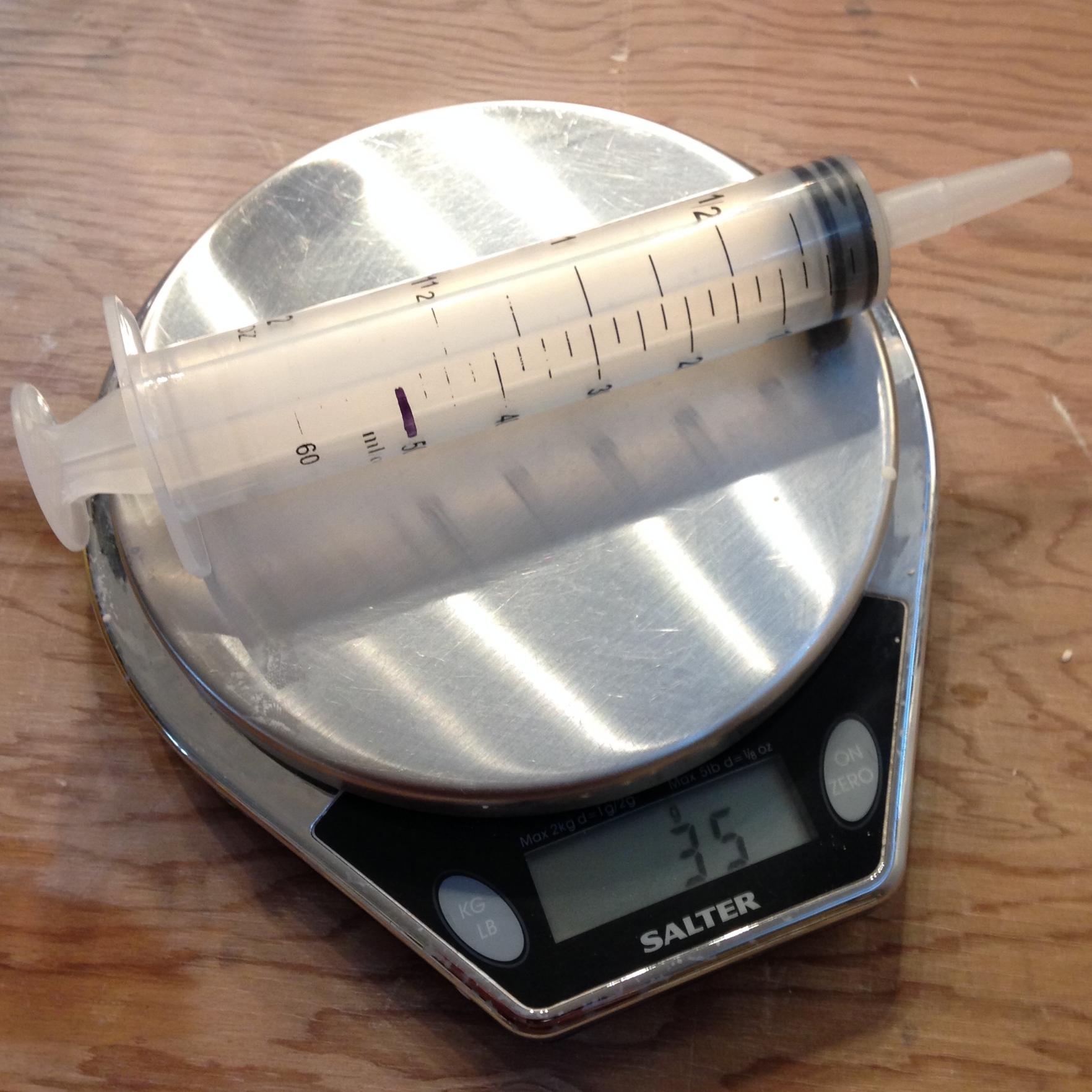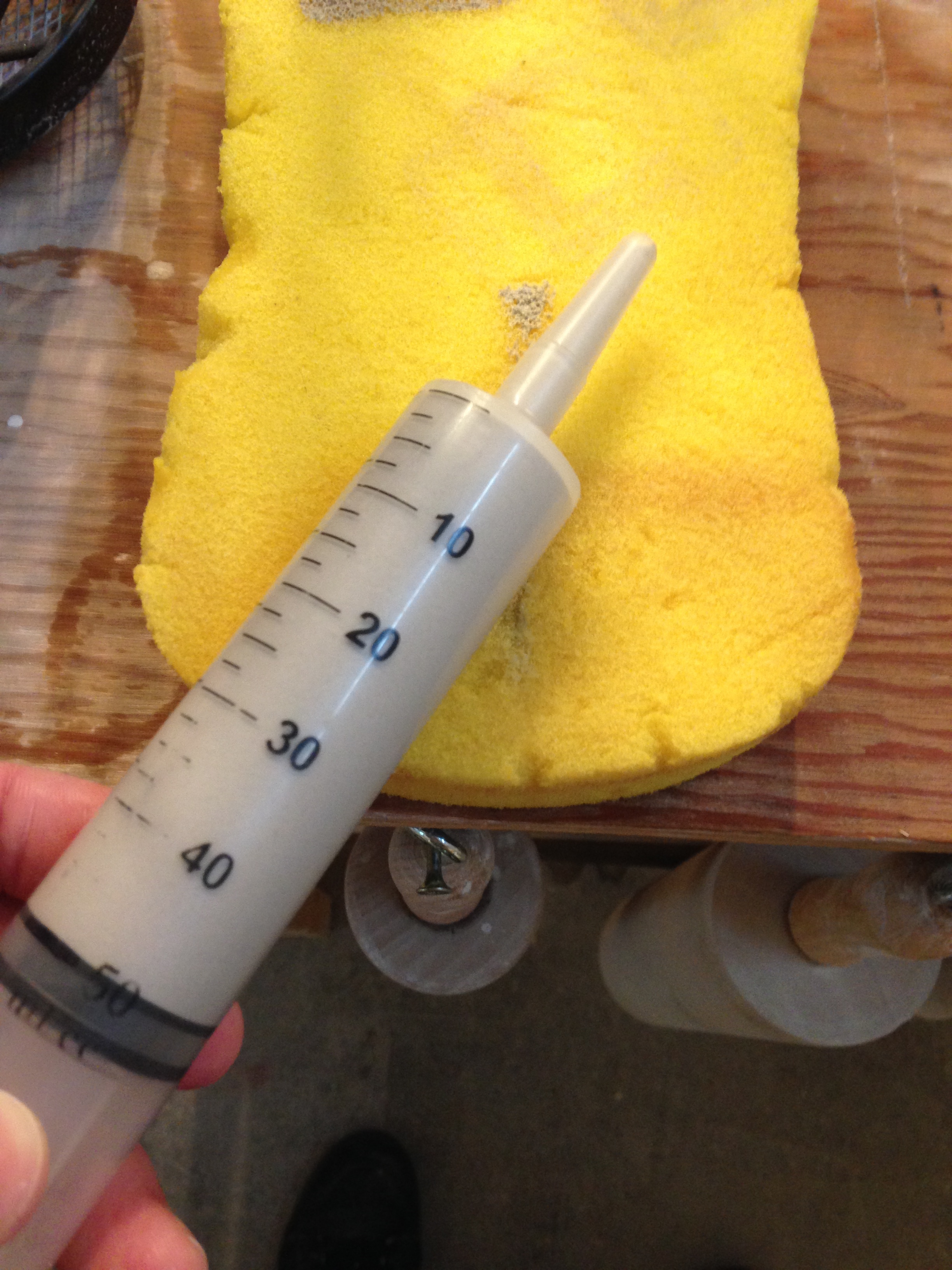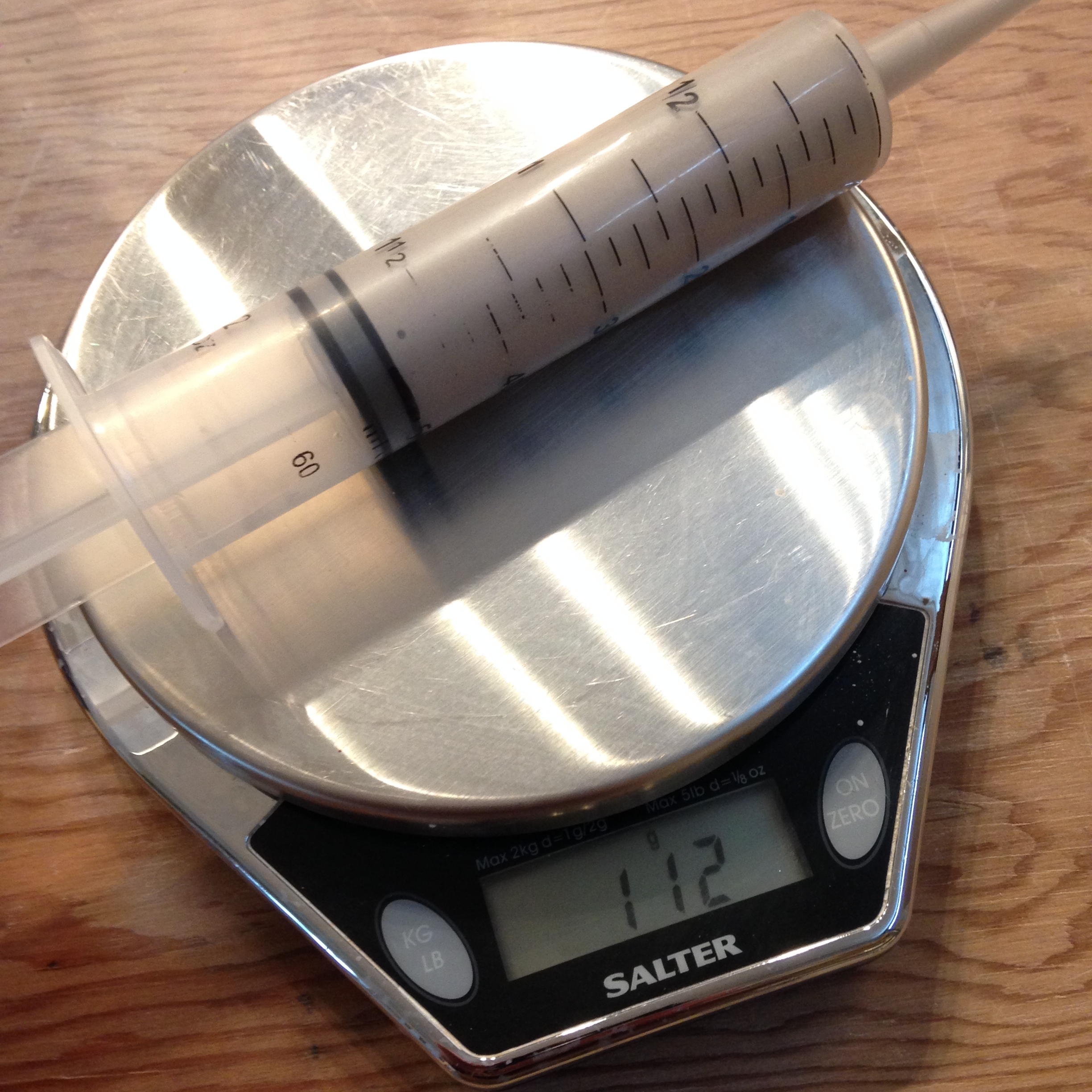Specific Gravity
/Written By Jake Corboy
Measuring the specific gravity of your glaze is very important. It allows you to mix different batches of the same glaze consistently. It helps you decide if you should add more water to a glaze to thin it down, or deflocculate it with a dispersal instead. It also helps when water has evaporated out of a glaze that has been sitting around for awhile. This way, you're able to bring it back to its original consistency. Basically, measuring specific gravity is telling you how much water is in your glaze.
There are several ways to measure the Specific Gravity of a glaze. I prefer using a 50ml plastic plunger syringe, because it is fairly quick, accurate and easy to measure with and clean.
Here is how to go about measuring the specific gravity of a glaze with a 50ml plastic syringe:
1) Weigh the plastic syringe and write it down. The syringe should be clean and completely dry when doing this.
2) Mix the glaze to be tested thoroughly. Then suck up the glaze to the 50ml line (make sure there are no big air bubbles in the syringe). Clean the glaze off the outside of the syringe with a sponge. Then weigh the glaze filled syringe.
3) Specific Gravity = (weight of 50ml glaze) minus (weight of the syringe) times 2, then divide by 100.
So, the glaze in the picture weighs 112g. Subtracting the 35g weight of my syringe gives me 77g. 77g times 2 = 154. Then divide by 100 (or just move the decimal to the left 2 spaces) and that gives us 1.54, which is the specific gravity of this glaze.
In general, a dipping glaze should have a specific gravity of 1.40 - 1.70. Each glaze is different and each person will have different preferences as to how thick they like the glaze. So, testing and adjusting the glaze according to your preferences is necessary.
Here are a couple links for more info on measuring specific gravity of a glaze.
A video by John Britt explaining specific gravity.
An AMACO video on specific gravity.
Digital Fire getting specific on specific gravity.









